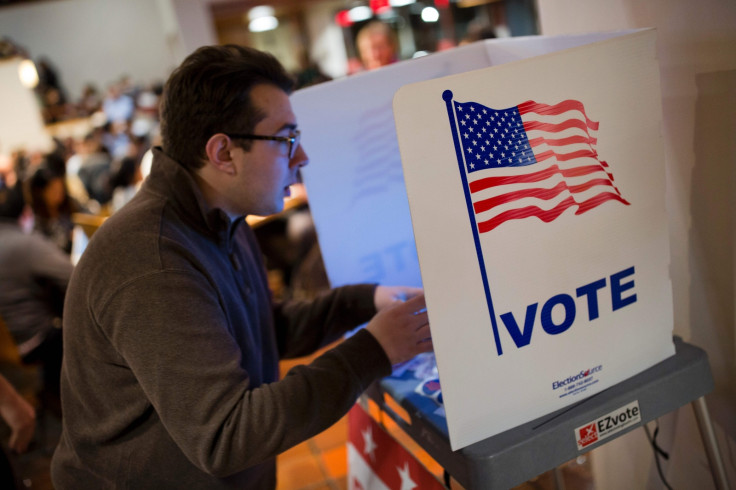Hackers probed voting systems of over 20 states but no sign of manipulation, US Homeland Security says
Homeland Security urges state and local election officials to seek its cybersecurity assistance.

The US Department of Homeland Security (DHS) has urged state election officials to seek assistance in bolstering cybersecurity ahead of the upcoming November elections after hackers targeted the voter registration systems of more than 20 states in recent months. However, Homeland Security Secretary Jeh Johnson said in a statement on Saturday (1 October) that the federal government could not find "any manipulation" of voting data so far.
"In recent months, malicious cyber actors have been scanning a large number of state systems, which could be a preamble to attempted intrusions," Johnson said in a statement. "In a few cases, we have determined that malicious actors gained access to state voting-related systems. However, we are not aware at this time of any manipulation of data."
Johnson further added that 21 states have sought the department's assistance to improve cybersecurity so far and hopes "to see more."
"These challenges aren't just in the future — they are here today," Johnson said. "We must remain vigilant and continue to address these challenges head on. Before November 8, I urge state and local election officials to seek our cybersecurity assistance."
Johnson's statements come amid heightened concerns over America's election infrastructure and foreign threat actors possibly undermining the integrity of the November 8 elections through cyberattacks.
On Friday (30 September), a department official, who was "not authorized to speak publicly on the subject", told the Associated Press that more than 20 states were probed in recent months. The official added that it was still unclear whether the hackers were foreign or domestic, or what their motives for the attacks were.
In September, Donna Brazile, head of the Democratic National Committee alleged that the organisation was breached by Russian state-sponsored agents attempting to influence the elections.
In recent weeks, at least four states have had their voter registration systems breached by hackers suspected to be linked to the Russian government, ABC News reported, citing sources "with knowledge of the matter." Following evidence that hackers have attempted to penetrate state voter registration databases in at least two states, including Arizona and Illinois, the FBI warned state officials to remain vigilant and boost election security.
"There's no doubt that some bad actors have been poking around," FBI Director James Comey told US lawmakers last week, noting that there have been "some attempted intrusions at voter registration databases" since August. He added that the FBI is trying to find out "just what mischief is Russia up to in connection with our election."
Comey also said that voter registration systems are currently being targeted, not the voting system itself, maintaining that the latter is "very, very hard for someone to hack into" since election systems are decentralized and are generally not connected to the internet.
"This is very different than the vote system in the United States, which is very, very hard for someone to hack into because it's so clunky and dispersed," Comey said. He added that state election officials should be in contact with the DHS to "make sure that their deadbolts are thrown and their locks are on."
Republican candidate Donald Trump has repeatedly said that the US election system is "rigged" while Democrats have claimed that the recent attacks on the the Democratic National Committee, Democratic Congressional Campaign Committee and presidential hopeful Hillary Clinton's campaign were launched by cybercriminals with ties to the Kremlin.
Last month, Representative Hank Johnson, a Democrat from Georgia, proposed two bills that would require designating voting systems as critical infrastructure in the future and limit the purchase of new voting systems that don't produce a paper trail, among other security measures. However, it is unlikely that the bills will be passed before the impending election.
© Copyright IBTimes 2025. All rights reserved.





















